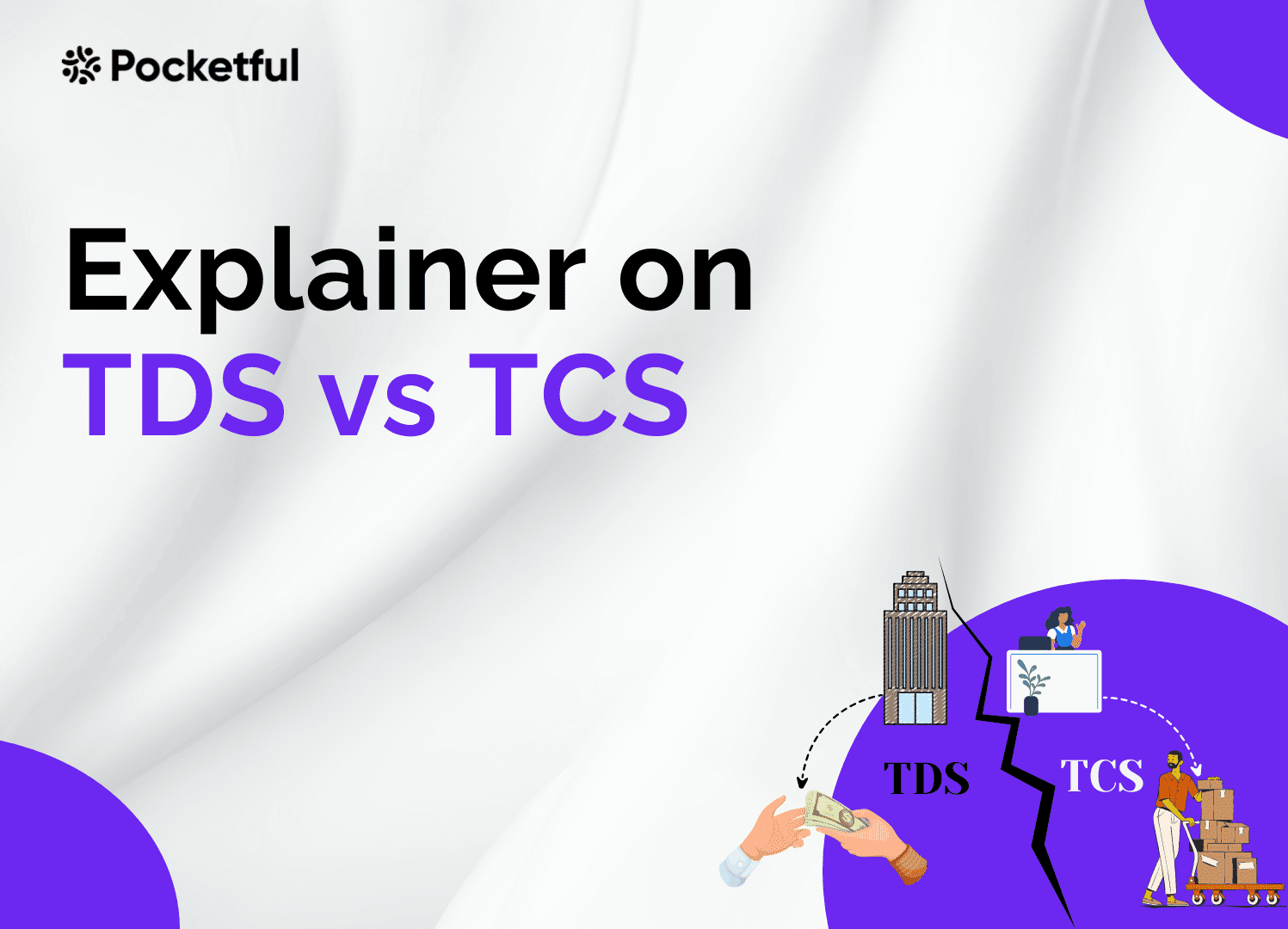| Type | Description | Contributor | Date |
|---|---|---|---|
| Post created | Pocketful Team | Jun-26-24 | |
| Add new links | Nisha | Mar-12-25 |
Read Next
- SEBI Action on Jane Street: Impact on Indian Markets
- What is Personal Finance?
- Military Wealth Management: Strategies for Growing and Preserving Your Assets
- India’s Republic Day 2025: Honoring the Nation’s Defense Achievements
- 10 Essential Financial Planning Tips for Military Members
- How Do You Apply for PAN 2.0 Online and Get It on Your Email ID?
- 10 Best YouTube Channels for Stock Market in India
- LTP in Stock Market: Meaning, Full Form, Strategy and Calculation
- 15 Best Stock Market Movies & Web Series to Watch
- Why Do We Pay Taxes to the Government?
- What is Profit After Tax & How to Calculate It?
- Budget 2024: Explainer On Changes In SIP Taxation
- Budget 2024: F&O Trading Gets More Expensive?
- Budget 2024-25: How Will New Tax Slabs Benefit The Middle Class?
- Semiconductor Industry in India
- What is National Company Law Tribunal?
- What is Capital Gains Tax in India?
- KYC Regulations Update: Comprehensive Guide
- National Pension System (NPS): Should You Invest?
- Sources of Revenue and Expenditures of the Government of India
Difference Between TDS and TCS Explained with Examples

To improve tax compliance and ensure timely revenue collection, the government has implemented mechanisms like TDS (Tax Deducted at Source) and TCS (Tax Collected at Source). While both serve the broader purpose of collecting taxes at the source of income or transaction, they differ significantly in terms of process, rates, and applicability. However, many taxpayers often find it confusing to distinguish between the two.
In this blog, we will discuss TDS and TCS, usage and the main difference between the two are explained in detail.
TDS Full Form and Meaning
TDS i.e. Tax Deducted at Source is a tax deduction process in which tax is deducted for the government at the time of making payment to a person. Its purpose is to make tax collection timely and transparent. TDS is used when the amount of payment exceeds a fixed limit, such as salary, rent, interest or professional fees.
When and why is TDS deducted?
When a payment is above the fixed limit, the person making the payment deducts TDS on it so that the government can get the tax in advance.
Who deducts TDS?
The person or organization who is making the payment (such as a company, employer or businessman) is responsible for deducting TDS.
In which cases is TDS applicable?
TDS is usually applicable on salary, bank interest, rent, contracting, professional fees, commission etc.

TCS Full Form and Meaning
TCS i.e. Tax Collected at Source is a process in which the seller collects tax from the customer on the sale of a particular good or service. This tax is later deposited to the government. TCS is applicable only on some selected goods and transactions such as the sale of scrap, liquor, wood, motor vehicle or foreign tour package.
When and why is TCS collected?
When a seller sells an item on which TCS is applicable, he collects tax from the customer at a fixed rate so that the government can get the tax on the sale in advance.
Who collects TCS?
The trader or company by which the goods or services are being sold collects TCS from the customer.
On which transactions is TCS applicable?
TCS is mainly applicable on transactions like scrap, minerals, wood, vehicles (above ₹ 10 lakh), and international travel.

Read Also: TCS Case Study: Business Model, Financial Statement, SWOT Analysis
Key Differences Between TDS and TCS
| Particulars | TDS | TCS |
|---|---|---|
| Full Form | Tax Deducted at Source | Tax Collected at Source |
| Nature of Transaction | Deducted by payer when a payment is being made | Collected by seller when goods or services are sold |
| Applicable On | Payments like salary, rent, interest, contractor fees, commission, etc. | Sale of goods like alcohol, scrap, minerals, motor vehicles, foreign remittance, etc. |
| Who is Responsible | The person/entity making the payment (Deductor) | The seller or collector who receives payment (Collector) |
| When is it Deducted/Collected | At the time of making the payment | At the time of receiving the sale amount |
| Applicable Sections (Examples) | Section 192 (salary), 194C (contractor), 194J (professional fees), etc. | Section 206C (scrap, liquor), 206C(1H) (sale of goods), 206C(1G) (overseas tour/remittance) |
| Threshold Limit | Varies as per section; e.g., TDS on salary applies as per income slab; 194C: ₹30,000 per contract | Varies; e.g., TCS under 206C(1H) applies if sales exceed ₹50 lakh per buyer in a financial year |
| Deposit Due Date | 7th of the following month | 7th of the following month |
| Return Filing | Quarterly TDS returns (Form 24Q/26Q/27Q) | Quarterly TCS returns (Form 27EQ) |
| Reflects in Form | Appears in Form 26AS and AIS of the deductee | Also appears in Form 26AS and AIS of the buyer |
| Can Be Claimed in ITR? | Yes, as tax credit or refund | Yes, as tax credit or refund |
| Penalty for Non-Compliance | Non-deduction of TDS: 1% per monthLate payment of TDS: 1.5% per monthTCS non-compliance: 1% per month (increasing to 1.5% from April 1, 2025) | Interest @1% per month, late fee u/s 234E, and penalty under 271H |
Key TDS Sections (FY 2025–26)
| Section | Type of payment | TDS Rate | Threshold Limit |
|---|---|---|---|
| 192 | Salary | As per income tax slab | No threshold (applies on full income) |
| 194C | Contract/Work Order | 1% (Individual), 2% (Company) | ₹30,000 per contract or ₹1,00,000 per year |
| 194J | Professional/Technical Fees | 10% | ₹50,000 per year |
| 194H | Commission/Brokerage | 2% | ₹20,000 per year |
| 194I | Rent Land/Building | 10% | Monthly rent > ₹50,000 AND annual > ₹6 lakh (for non-individuals) |
| 194I | Rent Machinery/Plant | 2% | ₹2,40,000 per year |
| 194IB | Rent (by Individual/HUF) | 5% | ₹50,000 per month |
| 194A | Bank/Post Office Interest | 10% | General limit: ₹10,000 (increased from ₹5,000)For senior citizens: ₹1,00,000 (increased from ₹50,000)Others: ₹50,000 (increased from ₹40,000) |
| 194T | Partner’s Commission/Remuneration | 10% | ₹20,000 per year |
Key TCS Sections (FY 2025–26)
| Section | Transaction Type | TCS Rate | Threshold Limit |
|---|---|---|---|
| 206C(1) | Sale of alcohol, tendu leaves, timber, scrap, etc. | Varies (usually 1%–5%) | No threshold |
| 206C(1F) | Sale of motor vehicle > ₹10 lakh | 1% | Vehicle value above ₹10,00,000 |
| 206C(1G) | Overseas remittance under LRS | 5% / 20%* | ₹10 lakh per financial year |
| 206C(1G) | Foreign travel package | 5% | No threshold |
Due Dates for TDS and TCS Payment & Filing
The government has set clear deadlines to ensure timely collection of TDS and TCS and return filing. Delays attract both late fees and penalties.
Last date for monthly payment :
- Payment of TDS and TCS: By 7th of every month, on deduction/recovery of the previous month.
- For the month of March: The payment deadline is by 30th April.
Last Date for Filing Quarterly Returns:
| Quarterly | Last date for filing TDS / TCS returns |
|---|---|
| April – June | 31st July |
| July – September | 31 October |
| October – December | 31 January |
| January – March | 31st May |
Late fees and penalties:
- Late fee of ₹200 per day (Section 234E)
- Penalty up to ₹10,000 (Section 271H), if wilfully not filed or wrong return is filed.
TDS vs TCS with Real-Life Examples
The annual salary of an employee is ₹12,00,000. The company has to deduct TDS from the salary as per the new tax slabs as given below:
Applicable Slabs under New Regime :
- ₹0 – ₹4,00,000 = 0%
- ₹4,00,001 – ₹8,00,000 = 5%
- ₹8,00,001 – ₹12,00,000 = 10%
TDS Calculation Breakdown :
- ₹0-₹4 lakh = ₹0 tax
- 5% on ₹4-8 lakh = ₹20,000
- 10% on ₹8 -12 lakh = ₹40,000
- Total TDS = ₹60,000 (over the whole year)
The company deducts ₹5,000 every month and deposits it to the government.
Example of TCS (Luxury Car Purchase) : Suppose a person is purchasing a new car worth ₹15,00,000. As per section 206C(1F) of the Income Tax Act, 1% TCS is levied on sale of motor vehicles above ₹10 lakh.
- Vehicle Price = ₹15,00,000
- TCS Rate = 1%
- TCS = 1% of ₹15,00,000 = ₹15,000
This ₹15,000 will be added separately to the showroom bill and deposited to the government as Tax Collected at Source. This amount will also be reflected in the customer’s Form 26AS and can be claimed in ITR.
Impact on Taxpayers: TDS and TCS in ITR Filing
When an individual makes a transaction related to salary, interest, professional fees or any big purchase, TDS or TCS is deducted/collected on it. All this information is automatically reflected in Form 26AS and AIS (Annual Information Statement).
Details of TDS and TCS in Form 26AS
Form 26AS is an annual tax statement that records TDS deducted or TCS collected from any source. It is a required document to claim tax credit while filing returns.
How to get a refund or adjustment?
If the total tax liability at the end of the year is less than the TDS deducted or TCS collected, then the individual has the right to claim refund. This can be done easily through an online process during ITR.
Why is PAN linking necessary?
All TDS and TCS entries are linked to PAN. If PAN is not linked properly, the information in Form 26AS will not be updated and there may be problems in claiming tax credit in ITR.
Conclusion
Both TDS and TCS are tax collection instruments that help the government get timely revenue. Understanding them not only helps taxpayers file correct ITR but also makes refund claims, document verification and future planning easier. If their records are maintained properly, many tax-related problems can be avoided. Therefore, it is very important for every taxpayer to keep the information related to TDS and TCS updated and correct.
| S.NO. | Check Out These Interesting Posts You Might Enjoy! |
|---|---|
| 1 | TCS vs Wipro: Comparison Of Two IT Giants |
| 2 | Tata Technologies Vs TCS: Which is Better? |
| 3 | Tax Implications of Holding Securities in a Demat Account |
| 4 | What is Capital Gains Tax in India? |
| 5 | Infosys vs TCS: A Comparative Analysis of IT Giants |
Frequently Asked Questions (FAQs)
What is the time limit for a TDS refund?
Generally, the TDS will be refunded within 3 to 6 months. It also depends on whether you have completed e-verification or not.
When are TDS and TCS applicable?
TDS is applicable to different incomes such as salary, interest, rent commission, etc., whereas TCS is applicable to the sale of goods such as scrap, tendu leaves, timber, etc.
What is the due date for depositing Tax Deducted at Source (TDS)?
The due date for depositing TDS is the 7th of next month, in which the TDS is deducted, and the March due date is April 30th.
How do I verify the deducted TDS on my behalf?
To verify the details of TDS, you can visit the e-filling portal of income tax, and there, you can find Form 26AS, which has all the relevant details.
What is the basic difference between TDS and TCS?
TDS is deducted by the payer at the time of making payment, while TCS is collected by the seller at the time of sale.
How is TCS shown in income tax records?
TCS entries are visible in Form 26AS and AIS.
What is the TDS rate on salary in 2025?
In the new tax system, TDS ranges from 0% to 30% on salary depending on the slab.
On which transactions is TCS applicable?
TCS is levied on transactions such as luxury cars, scrap, tour packages and foreign remittances.
Disclaimer
The securities, funds, and strategies discussed in this blog are provided for informational purposes only. They do not represent endorsements or recommendations. Investors should conduct their own research and seek professional advice before making any investment decisions.
Article History
Table of Contents
Toggle